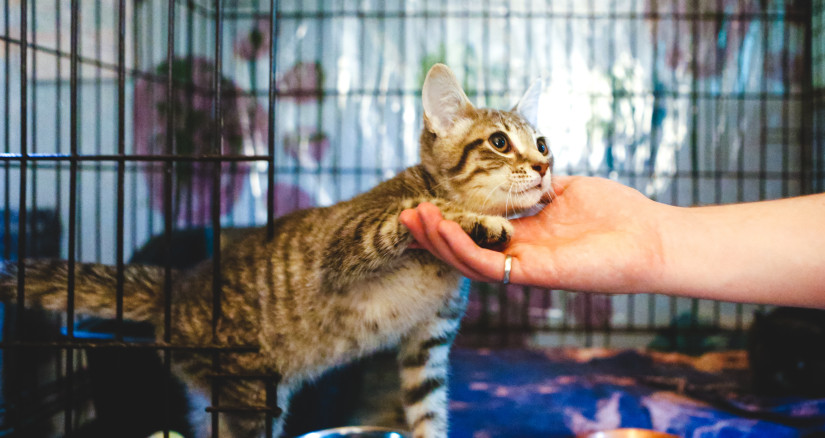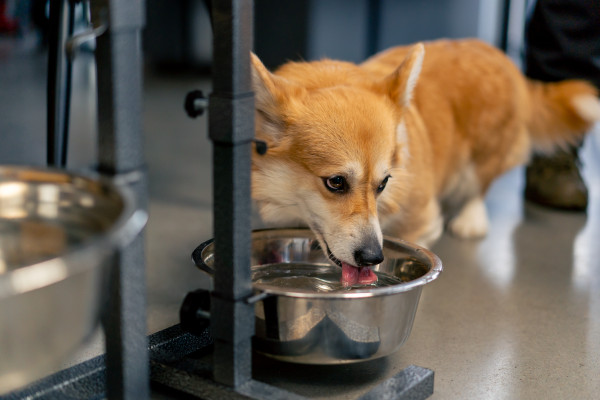
Proposed Federal Bill Seeks to Protect Pet Food Donors—But Who Protects Shelters?
In 2023, Representative Jamie Raskin (D-MD) introduced the Bring Animal Relief and Kibble (BARK) Act in the United States House of Representatives. This piece of legislation aims to provide legal liability protection for individuals, organizations, nonprofits, and other donors of companion animal food and supplies.
The BARK Act represents an amendment to the current Bill Emerson Good Samaritan Food Donation Act of 1996, which provides legal liability protection for donors of human food to those in need.
This is a commendable step forward for supporting animals in need and those who care for them, including animal shelters, hospitals, and rescues. Not only does this bill provide an easier avenue for pet food brands, consumers, and other industry organizations to make donations, but it will also support receiving organizations’ ability to provide animal aid in critical or underserved areas, as well as during disaster relief efforts.
American animal shelters have reached a breaking point. Between rising intake, intensive medical and behavioral care, and a slowdown in fostering and adoptions, these organizations heavily rely on volunteers and community donations to meet the basic needs of the animals in their care. Additionally, staffing shortages, veterinary burnout, and rising medical costs have left animal shelters, rescues, and hospitals stretched thin—both financially and operationally.
“This bill will help shelters across the country who are facing an ongoing capacity crisis, caused by animals staying in shelters longer, staffing and veterinary shortages, and an increase in the number of animals with significant medical and behavioral needs,” commented Maggie Garret, Vice President of Federal Affairs for the American Society for the Prevention of Cruelty to Animals (ASPCA).
This legislation represents an overall net-positive for the pet care industry and animals in need. However, to make donating easier for brands and individuals, animal shelters and other receiving organizations could be placed at a legal liability disadvantage.
Photo by composter-box
Good Faith Donations
First, we have the concept of “good-faith” donations. The Bill Emerson Good Samaritan Food Donation Act specifies that donations must be made in good faith to be eligible for legal liability protection, but fails to define what “good faith” really means. In general, a good-faith donation is one without gross negligence or intentional misconduct—either donating a product without verifying that the product is safe for consumption or knowingly donating a product that could cause harm to an animal.
Because “good faith” has not been strictly defined, its interpretation is up for debate. This means if a pet food brand donates surplus pet food but fails to ensure the food is safe for consumption, receiving organizations like animal shelters—which tend to be under-funded and over-crowded already—could bear the brunt of any practical consequences, including caring for sick animals, covering veterinary costs, or managing reputational damage.
Additionally, the bill does not provide funding, insurance, or recovery methods for shelters that receive substandard donations that negatively impact the health of animals in their care. This could leave them financially and legally exposed, with no recourse but to prove their case in a court of law, which can be costly and time-consuming, particularly for organizations that are already underfunded and time-constrained.
If good-faith donations set the foundation for legal liability protection for donors, but because there is no oversight of those donations to determine if they were made in good faith, we’re potentially opening up already at-risk organizations to greater costs. In the event of “bad-faith” donations or negligence, donations could actually sabotage the intended goal of this bill—to support shelters and animals within them.
Bad Actors
Due to a lack of oversight and accountability, the BARK Act could also open the door for bad actors to offload their waste or otherwise unusable inventory. It’s one thing to donate an off-spec batch that doesn’t meet brand standards for functional claims, like joint support. It’s another thing entirely to intentionally donate spoiled or damaged batches under the guise of altruism.
This kind of behavior would not only jeopardize the health of pets and the reputations and operations of shelters, but could also dilute the efforts of more responsible organizations and donors.

Photo by guyswhoshoot
Responsible Revisions
While this act is absolutely a step in the right direction, the BARK Act could benefit from revisions that protect not only donors but receiving organizations as well.
- Set standards—and stick to them. Define language around what is acceptable in terms of quality, safety, and condition to weed out bad actors from taking advantage. Clarify what “good faith” entails for each specific item eligible for donation to avoid confusion and misinterpretation.
- Establish shared oversight. Third-party organizations and nonprofits could provide the support needed to validate acceptable donations and catch missteps before they become a financial beast of a burden for shelters and other receiving organizations.
- Implement incident reporting. Create a straightforward channel for beneficiaries to report issues with donations and pursue practical recourse—other than proving gross negligence in court—in the event of illness or harm to animals.
The BARK Act is a timely and admirable effort to ensure all animals receive the food and supplies they need while reducing exorbitant waste within the pet food supply chain. However, it will be important to close the liability gap and provide more protection for shelters and beneficiaries. With the inclusion of modest safety and accountability measures, this bill can achieve its full potential—benefiting donors, nonprofit organizations, and most importantly, the animals they serve.
The bill is currently in the House of Representatives’ Committee on Education and the Workforce, where it awaits next steps. You can find the full text of the BARK Act here to keep up with the latest developments.
Whether the BARK Act is passed as-is or modified, the fact remains—animals are in need, and many pet food brands hold the resources to meet those needs through surplus food and supplies. BSM Partners is comprised of longtime pet food industry experts who can assist companies in ensuring products are safe to donate, whether surplus or off-spec for that particular brand. Contact our team to learn more about how we can help your brand safeguard donations that support shelters and the pets that depend on them.
Follow us on LinkedIn for the latest updates on all things happening here at BSM Partners.
About the Author
Jordan Tyler is the Director of Media at BSM Partners and co-host of the Barking Mad podcast. She has more than five years of experience reporting on trends, best practices and developments in the North American pet nutrition industry. Jordan resides in Bentonville, Arkansas, with her husband and their four furry family members.
This content is the property of BSM Partners. Reproduction or retransmission or repurposing of any portion of this content is expressly prohibited without the approval of BSM Partners and is governed by the terms and conditions explained here.